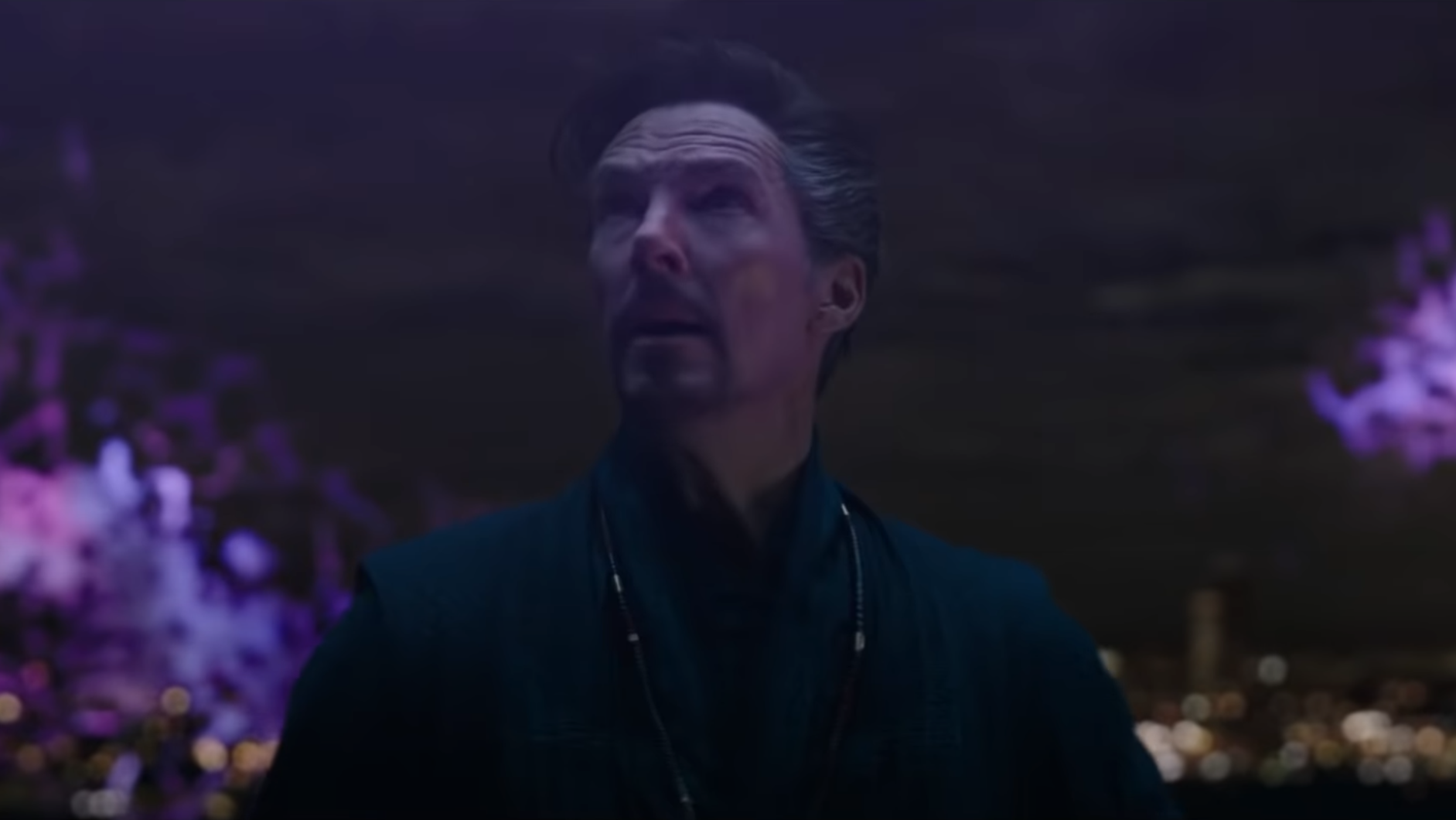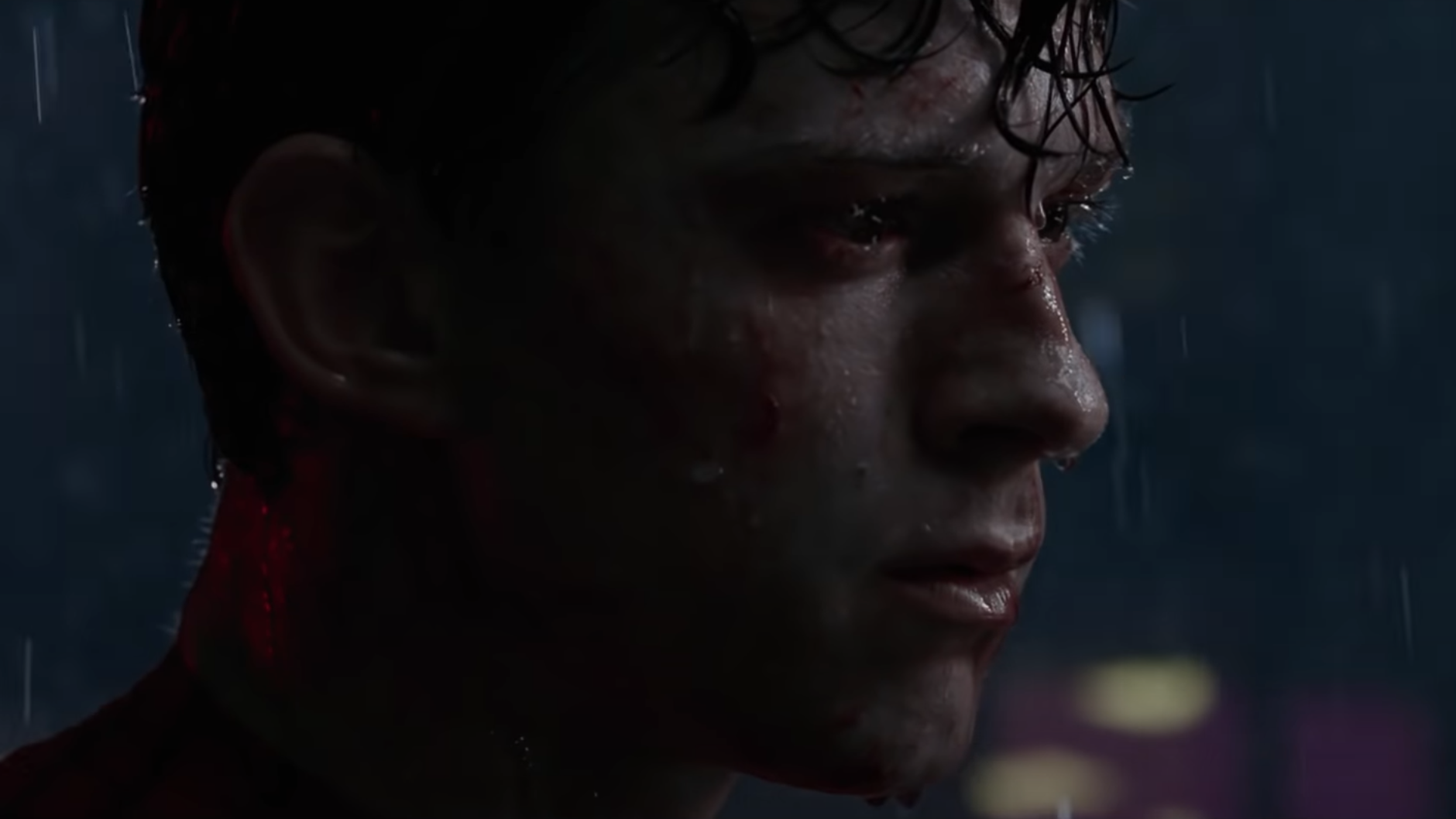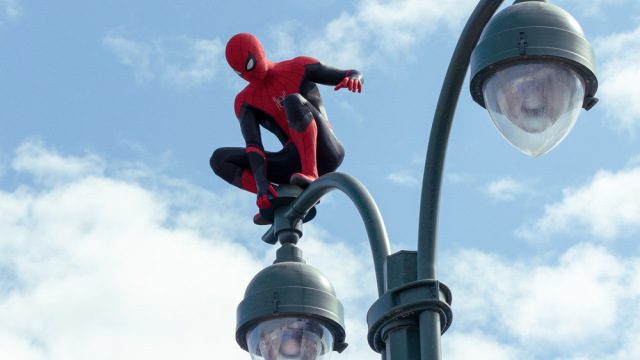The Spider-Man of Marvel’s Cinematic Universe was hailed when he truly arrived in Homecoming as the Spidey with no unnecessary origin — we’d all experienced Uncle Ben, great power, and greater responsibility enough that it was thought unneeded. But No Way Home ultimately concludes that in order to grow and move on, our latest Peter Parker needed it more than most.

Holland’s Spider-Man has, since his introduction in Civil War, lingered in the shadow of father figures that sought to replace the one pivotal figure his origin story always lacked: Uncle Ben. Although briefly mentioned, the MCU’s Ben Parker has never had the impact upon Peter the way such a figure has had across decades of comic, TV, gaming, and filmic interpretation of the Spider-Man mythos. Instead, for good or ill, across his three movies Peter has connected to alternate father figures. There was primarily Robert Downey Jr.’s Tony Stark, giving him the peculiar baggage of being the protégé of a former war profiteer and, in some ways, giving us a metatextual look at the relationship between Marvel Studios and Sony Pictures in their deal to share Spider-Man’s movie rights, an imbalance in text and out of it where one side needed the other far more.
Since Tony’s passing in Endgame, there were shades of his role in Peter’s life echoed first through Mysterio in Far From Home — taking advantage of a vulnerable Peter still hurting from the loss of Tony — and then in perhaps less profound but still important ways, Doctor Strange in No Way Home. But none ever quite squared the circle on the sort of relationship Peter had with Uncle Ben — tying him to infrastructures and organisations like the Avengers, saddling him with the legacy of heroes before him that fundamentally altered who this Peter was compared to past interpretations, an inventive kid from Queens thrust into superhuman power, yes — but one backed by a massive support structure, the unwary mantle of the Stark legacy and the technological riches that came with it. Across his trilogy, the MCU Peter Parker has struggled to grasp with who he wants to be as a hero: the Spider-Man, or the inheritor to a mantle he never really wanted to have when a billionaire jerk showed up at his flat and invited him to partake in a private war. But No Way Home fundamentally re-aligns Peter as he moves ahead to new adventures in some smart ways, ones that both free him from the awkward legacy he’s grappled with in the past four years while re-enforcing the emotive beats that have always made this version of the character work so well.

That comes in part from the status quo left in No Way Home’s climax: having gone through the multiversal highs and lows of battling familiar foes and uniting with alternate facsimiles of himself, in order to save the day and stop the universe from ripping apart, Peter returns to Doctor Strange with a re-iteration of the plea we saw repeated in the film’s trailers: cast a spell that will undo the public’s knowledge that he is Spider-Man. But instead of the somewhat selfish tone that initial ask had, everything Peter goes through in No Way Home leads him to offer an alternate version: a spell where people don’t just forget who Spider-Man is, but who Peter Parker is, full stop. No one, not Strange, not the Avengers, not even the love of his life MJ nor his best friend Ned, will know he exists, leaving Peter Parker and Spider-Man truly alone. It is a brilliant riff far closer to the premise of One Moment in Time — where Peter makes a similar ask of Doctor Strange after the controversial events of the One More Day story arc — than the first time Peter comes to Strange in the movie, one that is informed by the lessons learned and pains endured throughout No Way Home, and one that leaves us looking to Peter’s future with renewed potential.
As tragic as it is that he has to leave Ned and MJ behind, unable to bring himself to try and re-stoke their memories of him, and in being largely cut away from his personal connections to the Avengers or Tony Stark’s legacy, Peter is freed to re-define Spider-Man’s connection to the larger MCU on his own terms for the first time since he was introduced in Civil War. He’s allowed to stand alone, and to simply be Spider-Man as he sees fit, having seen what is possible in that regards through the eyes of his alternate selves across the multiverse — Spider-Men that have been through hell and suffered through things alone, yes, but have grown stronger from it to become the heroes they are by the time they come to his aid.

The strength to make that kind of decision in the first place comes from No Way Home’s earlier, equally tragic twist: the death of May Parker. May’s surprising death midway through the film serves as a vital catalyst, not just in uniting Peter with his alt-selves through MJ and Ned’s attempts to find where he has gone to deal with his grief, but in, at long last, Spider-Man’s greatest watchwords being passed on to him — that with great power comes great responsibility. May’s death is on Peter’s hands in ways that echo many iterations of the character’s relationships with Ben — Peter, out of some level of hubris, makes a mistake in believing he’s earned the trust of the myriad villains from across the multiverse he’s tasked himself with rehabilitating, and it’s not directly him, but someone close to him, who pays the ultimate price when that decision plays out poorly. But tragic as it is, May’s death finally gives Peter the catalyst he needs to become a kind of Spider-Man fundamentally different to the one buffeted by the loss of father figures in his life like Tony Stark and Mysterio — figures in this superheroic world who always, in some manner, were perhaps always expected to die in the line of their duty as heroes. May’s death isn’t in a moment of grand sacrifice or epic stakes; she is an innocent caught in the crossfire, both literally and metaphorically as her connection to Peter’s life as Spider-Man is what puts her in that danger in the first place. It’s that loss that re-focuses Peter and defines his choice to move away from the connections behind him, a choice to magically slice himself out of the world as he knows it to start anew.
But he starts with all those lessons learned across his three films so far, and those learned in No Way Home at the forefront of his mind — the lessons he learned from the Spider-Men of the past, the lesson he learned from May. They’re lessons that can serve as the groundwork to rebuild a Spider-Man who can stand alone from the legacies of the MCU’s larger past, and truly be a hero unto himself. For a film that is so primarily concerned with celebrating the past of Spider-Man’s cinematic legacy, that’s a refreshingly forward-thinking note for No Way Home to conclude on.
